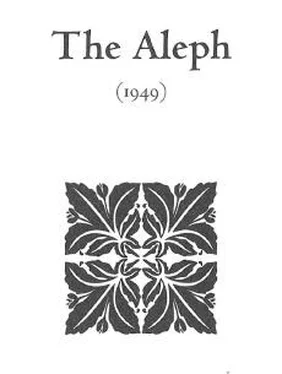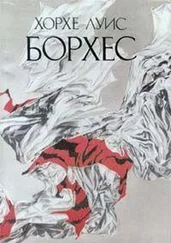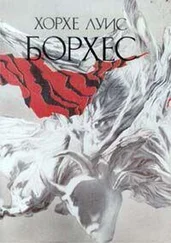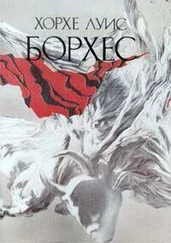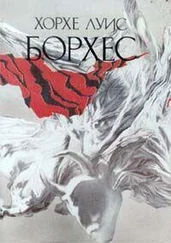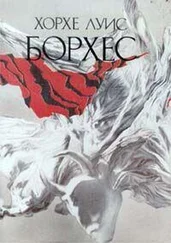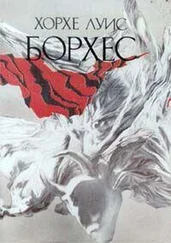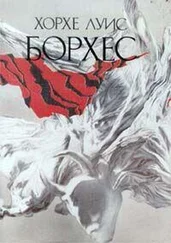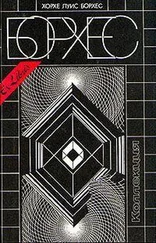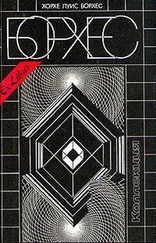Хорхе Борхес - Collected Fictions
Здесь есть возможность читать онлайн «Хорхе Борхес - Collected Fictions» весь текст электронной книги совершенно бесплатно (целиком полную версию без сокращений). В некоторых случаях можно слушать аудио, скачать через торрент в формате fb2 и присутствует краткое содержание. Год выпуска: 1999, ISBN: 1999, Издательство: Penguin (UK), Жанр: Старинная литература, на английском языке. Описание произведения, (предисловие) а так же отзывы посетителей доступны на портале библиотеки ЛибКат.
- Название:Collected Fictions
- Автор:
- Издательство:Penguin (UK)
- Жанр:
- Год:1999
- ISBN:9780140286809
- Рейтинг книги:5 / 5. Голосов: 1
-
Избранное:Добавить в избранное
- Отзывы:
-
Ваша оценка:
- 100
- 1
- 2
- 3
- 4
- 5
Collected Fictions: краткое содержание, описание и аннотация
Предлагаем к чтению аннотацию, описание, краткое содержание или предисловие (зависит от того, что написал сам автор книги «Collected Fictions»). Если вы не нашли необходимую информацию о книге — напишите в комментариях, мы постараемся отыскать её.
Collected Fictions — читать онлайн бесплатно полную книгу (весь текст) целиком
Ниже представлен текст книги, разбитый по страницам. Система сохранения места последней прочитанной страницы, позволяет с удобством читать онлайн бесплатно книгу «Collected Fictions», без необходимости каждый раз заново искать на чём Вы остановились. Поставьте закладку, и сможете в любой момент перейти на страницу, на которой закончили чтение.
Интервал:
Закладка:
The eight stories* in this book require no great elucidation. The eighth ("The Garden of Forking Paths") is a detective story; its readers will witness the commission and all the preliminaries of a crime whose purpose will not be kept from them but which they will not understand, I think, until the final paragraph. The others are tales of fantasy; one of them—"The Lottery in Babylon"—is not wholly innocent of symbolism. I am not the first author of the story called " The Library of Babel"; those curious as to its history and prehistory may consult the appropriate page of Sur,* No.59, which records the heterogeneous names of Leucippus and Lasswitz, Lewis Carroll and Aristotle. In "The Circular Ruins," all is unreal; in "Pierre Menard, Author of the Quixote" the unreality lies in the fate the story's protagonist imposes upon himself. The catalog of writings I have ascribed to him is not terribly amusing, but it is not arbitrary, either; it is a diagram of his mental history....
It is a laborious madness and an impoverishing one, the madness of composing vast books—setting out in five hundred pages an idea that can be perfectly related orally in five minutes. The better way to go about it is to pretend that those books already exist, and offer a summary, a commentary on them. That was Carlyle's procedure in Sartor Resartus, Butler's in The Fair Haven —though those works suffer under the imperfection that they themselves are books, and not a whit less tautological than the others. A more reasonable, more inept, and more lazy man, I have chosen to write notes on imaginary books. Those notes are "Tlön, Uqbar, Orbis Tertius" and "A Survey of the Works of Herbert Quain."
J. L. B.
Tlön, Uqbar, Orbis Tertius
I
I owe the discovery of Uqbar to the conjunction of a mirror and an encyclopedia. The mirror troubled the far end of a hallway in a large country house on Calle Gaona, in Ramos Mejia*; the encyclopedia is misleadingly titled The Anglo-American Cyclopaedia (New York, 1917), and is a literal (though also laggardly) reprint of the 1902 Encyclopœdia Britannica. The event took place about five years ago.
Bioy Casares* had come to dinner at my house that evening, and we had lost all track of time in a vast debate over the way one might go about composing a first-person novel whose narrator would omit or distort things and engage in all sorts of contradictions, so that a few of the book's readers—a very few—might divine the horrifying or banal truth. Down at that far end of the hallway, the mirror hovered, shadowing us. We discovered (very late at night such a discovery is inevitable) that there is something monstrous about mirrors. That was when Bioy remembered a saying by one of the heresiarchs of Uqbar: Mirrors and copulation are abominable, for they multiply the number of mankind. I asked him where he'd come across that memorable epigram, and he told me it was recorded in The Anglo-American Cyclopaedia, in its article on Uqbar.
The big old house (we had taken it furnished) possessed a copy of that work. On the last pages of Volume XLVI we found an article on Uppsala; on the first of Volume XLVII, "Ural-Altaic Languages"—not a word on Uqbar. Bioy, somewhat bewildered, consulted the volumes of the Index. He tried every possible spelling: Ukbar, Ucbar, Ookbar, Oukbahr ... all in vain. before he left, he told me it was a region in Iraq or Asia Minor. I confess I nodded a bit uncomfortably; I surmised that that undocumented country and its anonymous heresiarch were a fiction that Bioy had invented on the spur of the moment, out of modesty, in order to justify a fine-sounding epigram. A sterile search through one of the atlases of Justus Perthes reinforced my doubt.
The next day, Bioy called me from Buenos Aires. He told me he had the article on Uqbar right in front of him—in Volume XLVI* of the encyclopedia. The heresiarch's name wasn't given, but the entry did report his doc-trine, formulated in words almost identical to those Bioy had quoted, though from a literary point of view perhaps inferior. Bioy had remembered its being "copulation and mirrors are abominable,"while the text of the encyclopedia ran For one of those gnostics, the visible universe was an illusion or, more precisely, a sophism. Mirrors and fatherhood are hateful because they multiply and proclaim it. I told Bioy, quite truthfully, that I'd like to see that article. A few days later he brought it to me—which surprised me, because the scrupulous cartographic indices of Hitter's Erdkunde evinced complete and total ignorance of the existence of the name Uqbar.
The volume Bioy brought was indeed Volume XLVI of the Anglo-American Cyclopaedia. On both the false cover and spine, the alphabetical key to the volume's contents (Tor-Upps) was the same as ours, but instead of 917 pages, Bioy's volume had 921. Those four additional pages held the article on Uqbar—an article not contemplated (as the reader will have noted) by the alphabetical key. We later compared the two volumes and found that there was no further difference between them. Both (as I believe I have said) are reprints of the tenth edition of the Encyclopœdia Britannica. Bioy had purchased his copy at one of his many sales.
We read the article with some care. The passage that Bioy had recalled was perhaps the only one that might raise a reader's eyebrow; the rest seemed quite plausible, very much in keeping with the general tone of the work, even (naturally) somewhat boring. Rereading it, however, we discovered that the rigorous writing was underlain by a basic vagueness. Of the fourteen names that figured in the section on geography, we recognized only three (Khorasan, Armenia, Erzerum), and they interpolated into the text ambiguously. Of the historical names, we recognized only one: the impostor-wizard Smerdis, and he was invoked, really, as a metaphor. The article seemed to define the borders of Uqbar, but its nebulous points of reference were rivers and craters and mountain chains of the region itself. We read, for example, that the Axadelta and the lowlands of Tsai Khaldun mark the southern boundary, and that wild horses breed on the islands of the delta. That was at the top of page 918. In the section on Uqbar's history (p. 920), we learned that religious persecutions in the thirteenth century had forced the orthodox to seek refuge on those same islands, where their obelisks are still standing and their stone mirrors are occasionally unearthed. The section titled "Language and Literature" was brief. One memorable feature: the article said that the literature of Uqbar was a literature of fantasy, and that its epics and legends never referred to reality but rather to the two imaginary realms of Mle'khnas and Tlön.... The bibliography listed four volumes we have yet to find, though the third—Silas Haslam's History of the Land Called Uqbar (1874)—does figure in the catalogs published by Bernard Quaritch, Bookseller. [1]
The first, Lesbare und lesenswer the Bemerkungen über das Land Ukkbar in Klein-Asien, published in 1641, is the work of one Johannes Valentinus Andrea. That fact is significant: two or three years afterward, I came upon that name in the unexpected pages of De Quincey ( Writings, Vol. XIII*), where I learned that it belonged to a German theologian who in the early seventeenth century described an imaginary community, the Rosy Cross—which other men later founded, in imitation of his foredescription.
That night, Bioy and I paid a visit to the National Library, where we pored in vain through atlases, catalogs, the yearly indices published by geographical societies, the memoirs of travelers and historians—no one had ever been in Uqbar. Nor did the general index in Bioy's copy of the encyclopedia contain that name. The next day, Carlos Mastronardi* (whom I had told about all this) spotted the black-and-gold spines of the Anglo-American Cyclopaedia in a bookshop at the corner of Corrientes and Talcahuano.... He went in and consulted Volume XLVI. Naturally, he found not the slightest mention of Uqbar.
Читать дальшеИнтервал:
Закладка:
Похожие книги на «Collected Fictions»
Представляем Вашему вниманию похожие книги на «Collected Fictions» списком для выбора. Мы отобрали схожую по названию и смыслу литературу в надежде предоставить читателям больше вариантов отыскать новые, интересные, ещё непрочитанные произведения.
Обсуждение, отзывы о книге «Collected Fictions» и просто собственные мнения читателей. Оставьте ваши комментарии, напишите, что Вы думаете о произведении, его смысле или главных героях. Укажите что конкретно понравилось, а что нет, и почему Вы так считаете.
